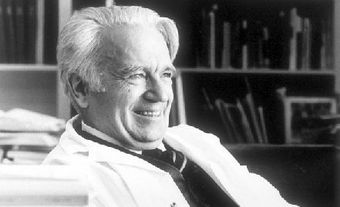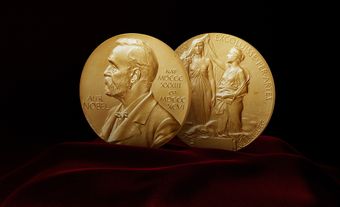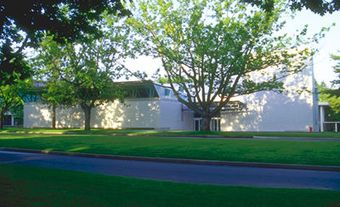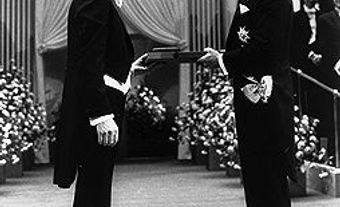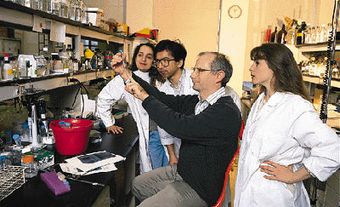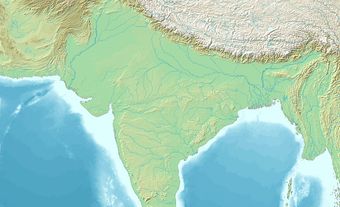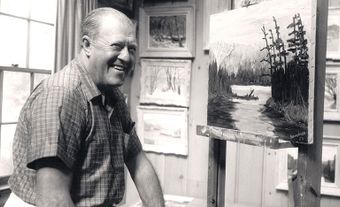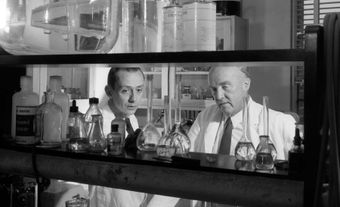Har Gobind Khorana, scientist (born 9 January 1922 in Raipur, India; died 9 November 2011 in Concord, Massachusetts). Beginning in 1952, Khorana undertook research in organic chemistry at the British Columbia Research Council (see Chemistry). After moving to the United States, he was jointly awarded the 1968 Nobel Prize in Physiology or Medicine with Robert W. Holley and Marshall W. Nirenberg “for their interpretation of the genetic code and its function in protein synthesis.” (See also Nobel Prizes and Canada.)
Har Gobind Khorana
Har Gobind Khorana, c. 1965.
(Photo by Keystone/via Getty Images)
Education and Career
Har Gobind Khorana’s mother was illiterate and his family impoverished. His first class was in the open on the edge of the Rajasthan Desert. Khorana’s brilliance was obvious early and, with scholarships, he earned degrees in organic chemistry at Punjab University (see Chemistry). He obtained a PhD at the University of Liverpool (1948) and then spent three years studying proteins and nucleic acids at Cambridge University. In spite of his ability, his race precluded him from appointment as a professor in Britain. In search of an outstanding young scientist, Gordon Shrum, a physicist from the University of British Columbia, hired Khorana to do organic chemistry at the British Columbia Research Council in Vancouver in 1952.
Gifted with a photographic memory, relentless drive, high standards and exquisite experimental dexterity, Khorana soon made an international reputation. Attracting a group of brilliant scholars, he succeeded in synthesizing pure ATP, the cellular source of energy. He made co-enzyme A, a complex molecule, important in metabolism. He showed how enzymes break down DNA, studied cyclic precursors of DNA, and discovered how to join building blocks into chains of DNA. Each discovery opened up new vistas for research. (See also Genetics.)
Did you know?
Biochemist and Nobel laureate, Michael Smith, pursued his post-doctoral work under the mentorship of Har Gobind Khorana.
Nobel Prize
In 1960, Har Gobind Khorana went to the United States where he proved the triplet DNA code and synthesized a gene in a test tube. When he was jointly awarded the Nobel Prize in Physiology or Medicine in 1968, he pointed out the importance of the Vancouver work and acknowledged three scientists, all at the University of British Columbia. (See also Nobel Prizes and Canada.)
After winning the Nobel prize, Khorana joined the Massachusetts Institute of Technology (MIT) in 1970, where he became the Alfred P. Sloan Professor of Biology and Chemistry. He retired in 2007.

Select Honours and Awards
- Nobel Prize in Physiology or Medicine, Nobel Assembly at Karolinska Institutet (1968)
- Canada Gairdner International Award, Gairdner Foundation (1980)

 Share on Facebook
Share on Facebook Share on X
Share on X Share by Email
Share by Email Share on Google Classroom
Share on Google Classroom
